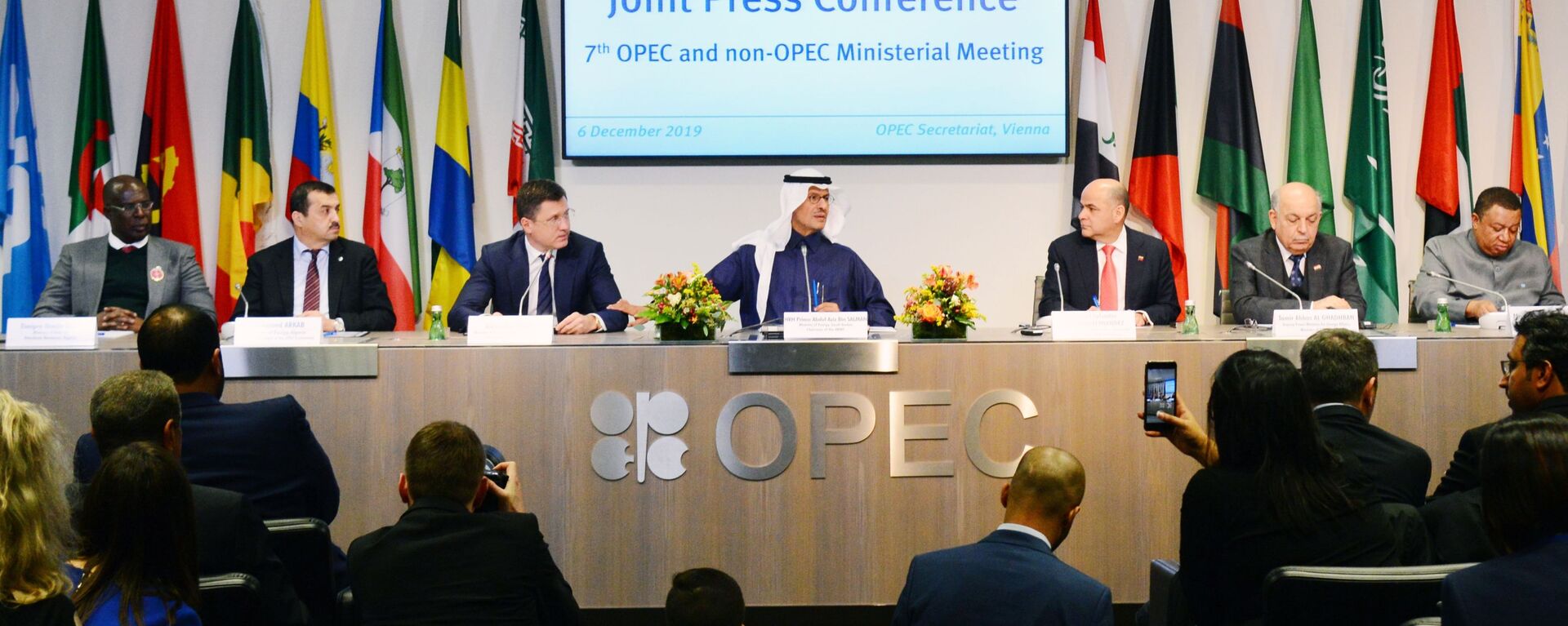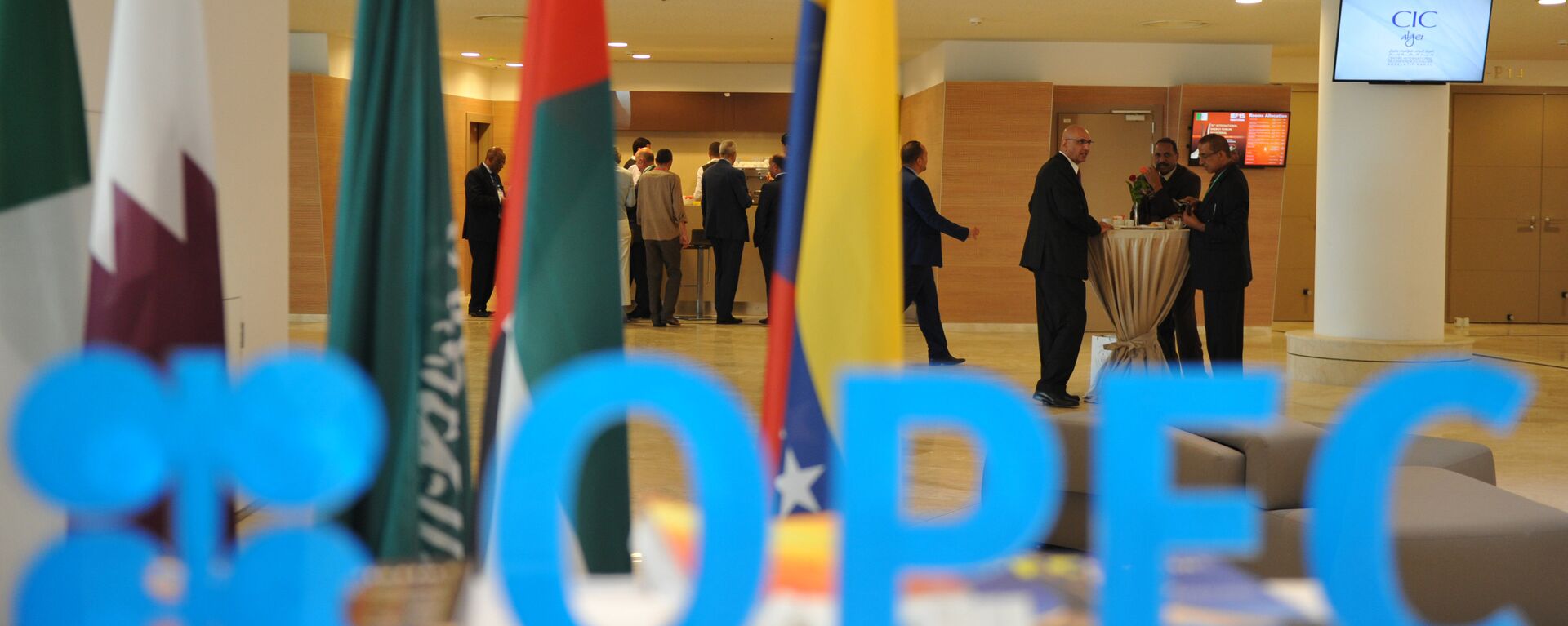Pundits Say US-Saudi Rift Over OPEC+ Production Cut All About Midterms
15:39 GMT 12.10.2022 (Updated: 15:45 GMT 12.10.2022)

CC0 / /
Subscribe
In a move that may further tarnish Washington's ties with one of its key regional allies, POTUS has announced it was time to re-evaluate the US' relations with Saudi Arabia after its partnership with Russia to cut oil production despite the White House’s preventative efforts. The 46th US president also warned that “there will be consequences”.
Riyadh-based political analyst Dr. Ahmed Al Ibrahim has told Sputnik that, “the cutbacks of OPEC+ came at a time where there was a lot of internal funny politics and the [US] midterm election,” which is why Democrats “are basically going furious”.
Touching upon Biden’s pledge to review relations with Riyadh, Al Ibrahim said that he doesn’t think that “Washington is ready to lose a key long-time ally in the region,” which he claimed is “very vital for America”. According to the political analyst, the next few weeks may see a change in Washington’s attitude on the matter.
“This administration is not worried about what the American people care about. They care about their party. If this party really cares about the American people, they should consider lowering their taxes on oil inside America and not actually going to oil producing countries and start threatening them. […] You cannot blame the GCC [Gulf Cooperation Council] countries or OPEC+; Americans need to look internally into their policy when it comes to energy security,” he pointed out.
The political commentator voiced hope that any “rupture” in the Riyadh-Washington relationship is “going to go away if the [US] Congress changes and more red states come into play.” He said that he thinks that by the next US election, “the new president will weigh things and will have a clear policy with GCC countries”.
Al Ibrahim was echoed by Saudi political scientist Abdallah Assaf, who told Sputnik that “it is extremely wrong for the US to blame Saudi Arabia for the OPEC+’s collective decision” and to “threaten to break bilateral ties - even if only partially”.
Assaf recalled that the decision to reduce oil production was taken by 20 countries collectively, not only Moscow or Riyadh, something that Washington prefers not to mention.
“Let me remind you that Washington also receives considerable profit from cooperation with Saudi Arabia, the kingdom, including from the supply of weapons. Are they ready to cut off their source of income?” he asked.
The political scientist emphasized that the decision to reduce oil production, which Saudi Arabia made jointly with other OPEC+ countries, is “purely economic in nature”. Given the fact that “OPEC+ was created to stabilize the oil market, […] it is at least incorrect for Washington to look at any political motives behind all this,” according to Assaf.
“One gets the impression that the American political establishment, led by President Biden, is using every excuse to stir up anti-Saudi sentiment within the US, and then justify their own [verbal] attacks on Riyadh. Washington and Riyadh earlier had a strong strategic relationship, despite US rhetoric against our other partners. At least the kingdom has enough wisdom not to escalate the situation – something that Washington, alas, has failed to do,” he noted.
US Seeking to 'Play Saudi Card'
Faysal Jalloul, a Saudi-born research fellow at the Paris Academy of Geopolitics, thinks that with Biden currently in hot water in the US, Washington is “trying to play the ‘Saudi card’”. According to Jallou, “Democrats will do anything to ruin the campaign of their competitors”.
“Why did they decide that the Saudis were to blame for the decision? It's simple: we are the largest oil-producing country in the world, with daily output standing at ten million barrels per day. Following us in terms of the level of influence on the oil market is Russia. So now it is already becoming easy for the Biden administration to explain to the electorate that it is not their policy that is to blame for the sharp rise in oil and gasoline prices, but a conspiracy between Moscow and Riyadh,” the research fellow argued.
He warned that the US may not “stop its anti-Saudi campaign so easily” and that “if the Democrats hold their ground in the elections, the process will continue.” The US has “already driven Europe into an energy crisis, interfering with Russian oil and gas supplies. Why do we think that they will not find an excuse to do the same with Saudi Arabia?” Jallou stressed.
The same tone was struck by Mehran Kamrava, professor of government at Georgetown University, Qatar, who told Sputnik that as far as Riyadh-Washington ties are concerned, “the United States is not necessarily losing a key ally, although, of course, relations are more difficult”.
“There are, no doubt, frictions in that relationship. The Saudis are now trying to extract a strategic price from the United States in the sense that they are trying to make sure that the United States does not take them for granted”. The professor suggested that there is “the primary intention of Saudi Arabia for raising the [oil] prices and of course, helping [Russian President Vladimir] Putin and putting the pressure on Europe.”
Dwelling on far-reaching repercussions from any potential US-Saudi rift, Kamrava pointed to “a greater willingness on the part of” Riyadh to assert its own strategic interests when those interests “might diverge from the United States”. He added that “in terms of long-lasting consequences, I think we're likely to see a greater level of assertiveness on […] Saudi Arabia […] in relation to the United States as we move forward”.
When asked how Riyadh could retaliate if sanctions were slapped on the kingdom, the professor said that he “can't imagine the United States imposing sanctions on Saudi Arabia”.
“But of course, [if it were to happen,] the Saudis are likely to retaliate by even higher oil prices or expressing their displeasure. And if that happens to be the case, then they will indicate their displeasure by showing greater commercial and diplomatic closeness to China and Russia,” he concluded.
The remarks came after Saudi Foreign Minister Faisal bin Farhan Al Saud said on Tuesday that the OPEC+ decision to decrease oil production by two million barrels per day was "purely economic" and was taken unanimously.
Last week, the oil cartel announced that they had agreed to cut oil production by two million barrels per day from November and will take production levels agreed for August as a reference point. The move was made in response to uncertainty in global oil market outlooks, caused in part by Western sanctions on Russian energy deliveries and the G7 plans to introduce a price cap on Russian crude. The decision received backlash from the United States, which demanded an increase in production to battle rising domestic prices.




